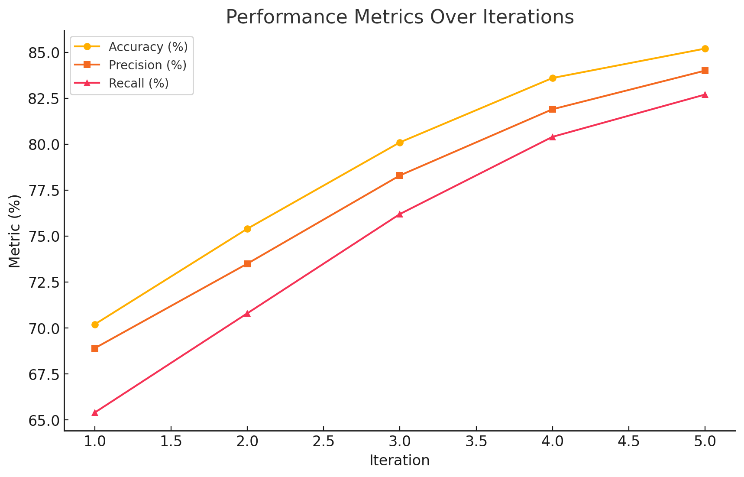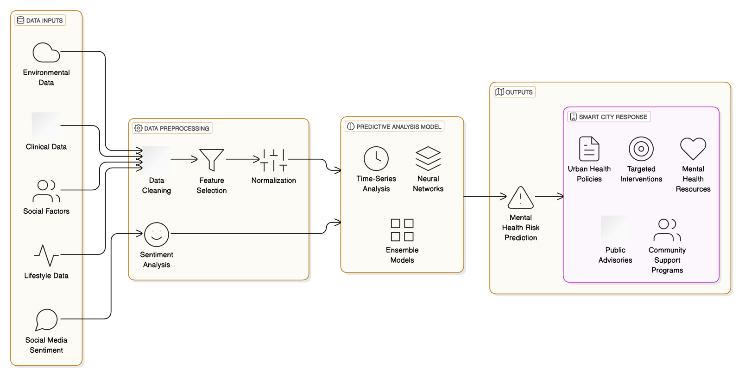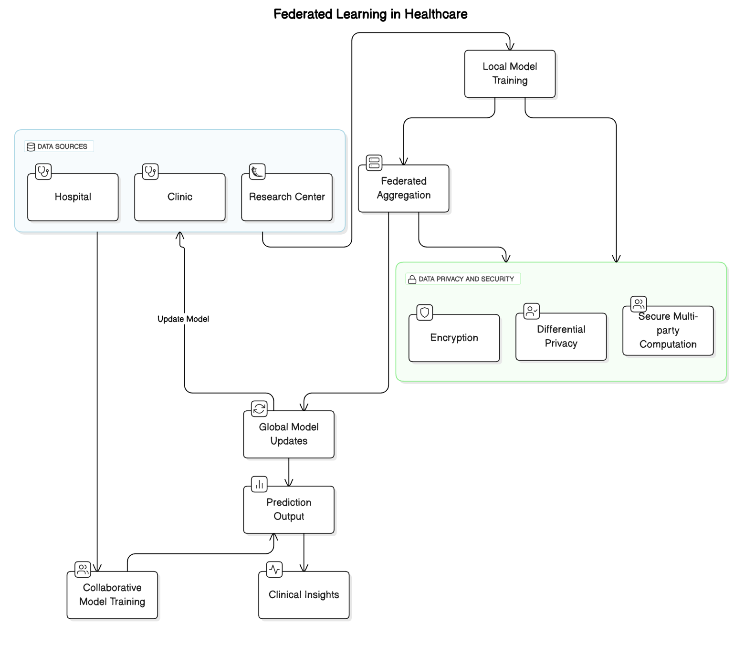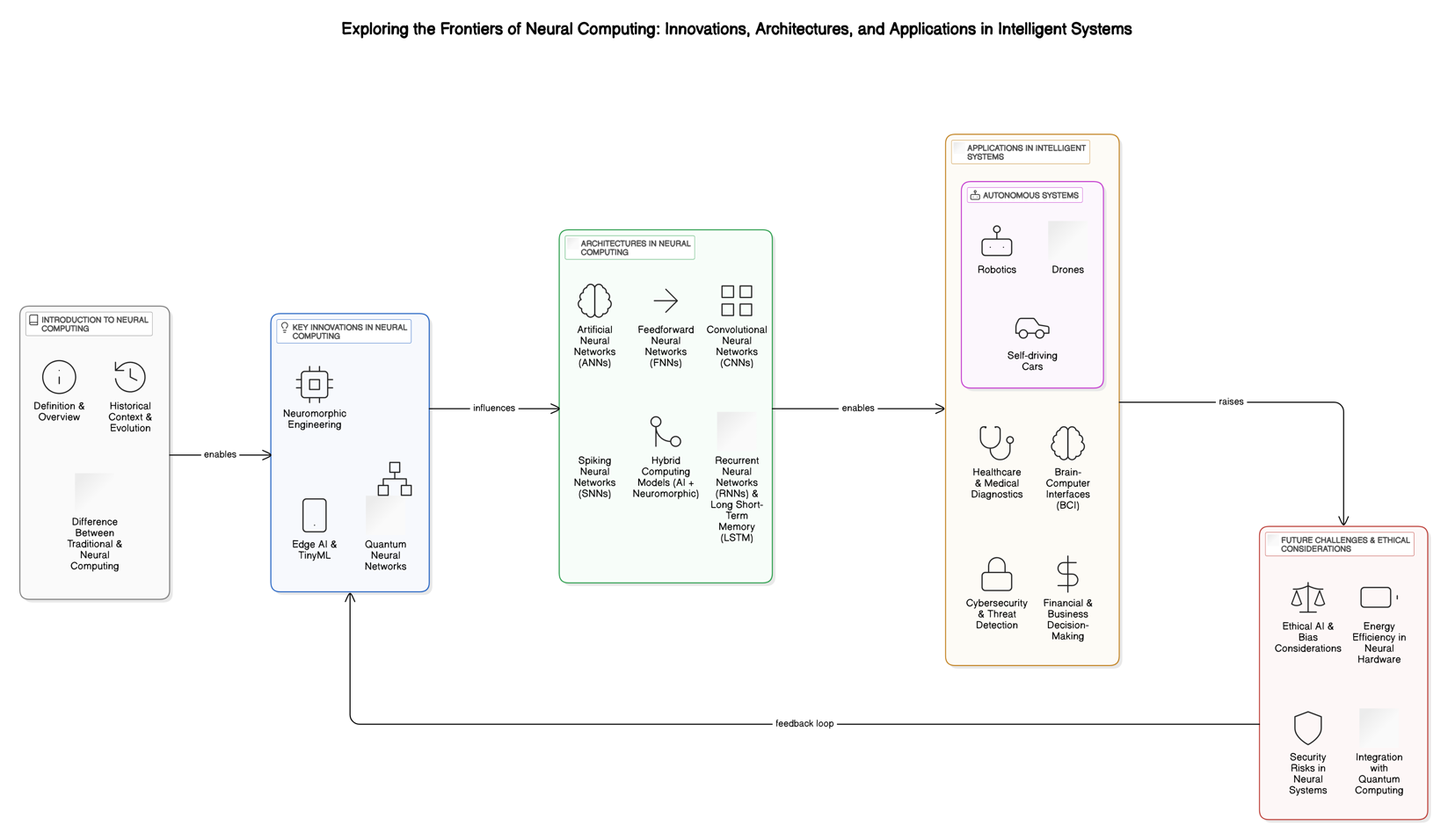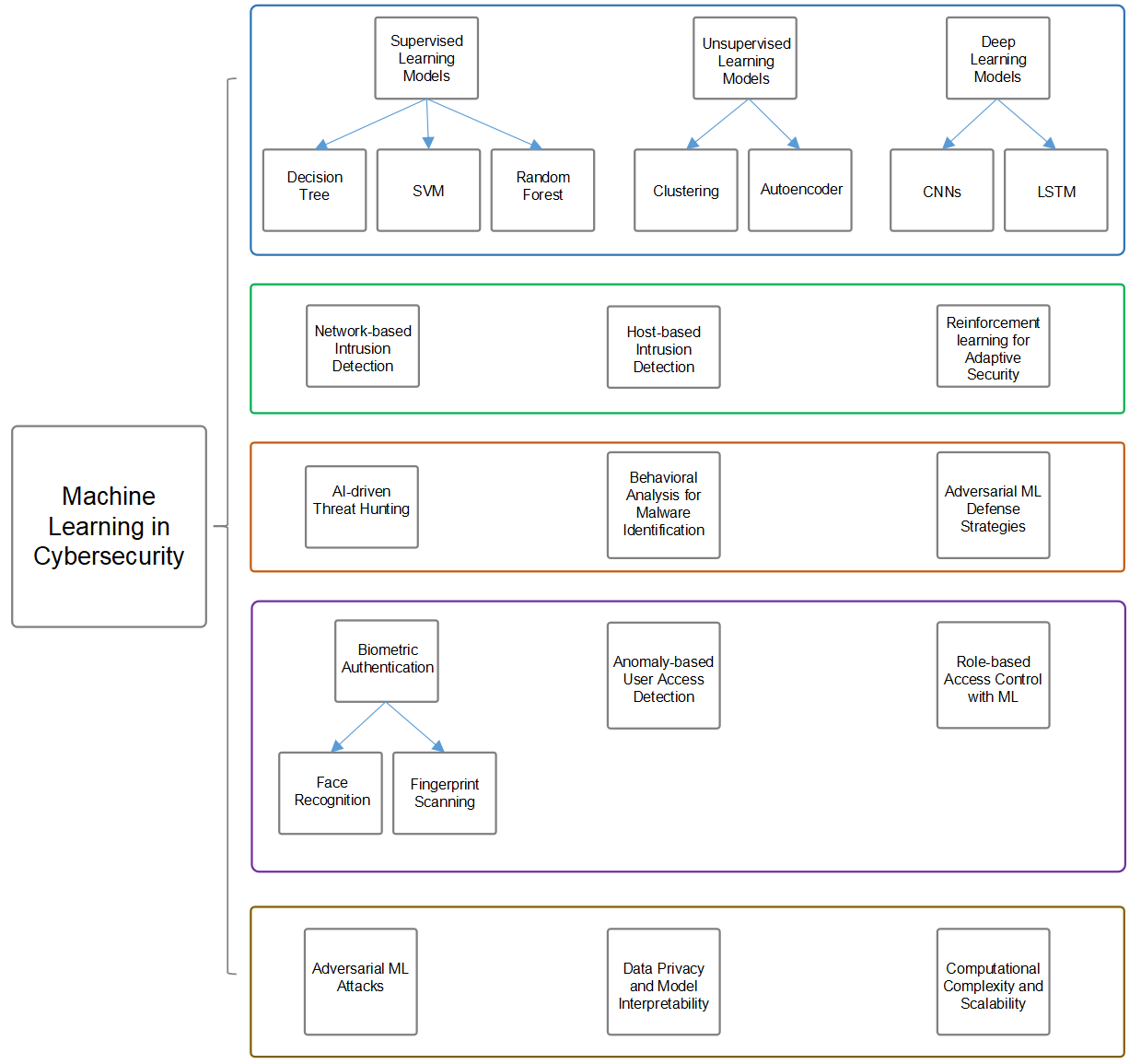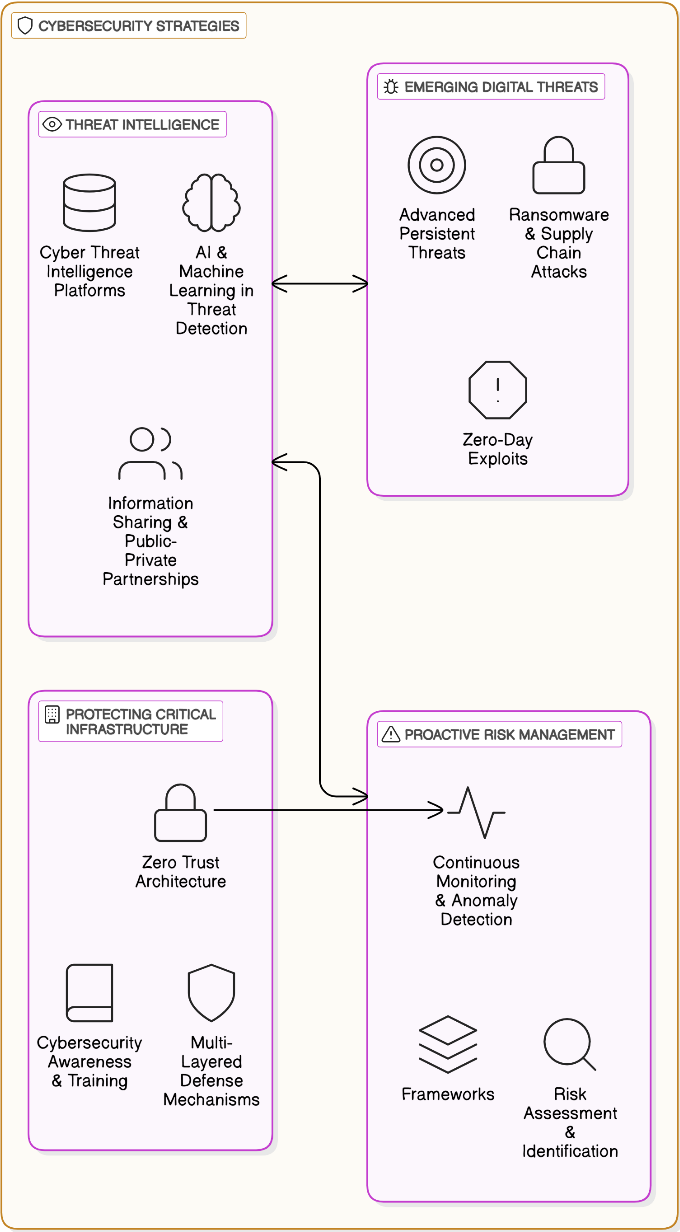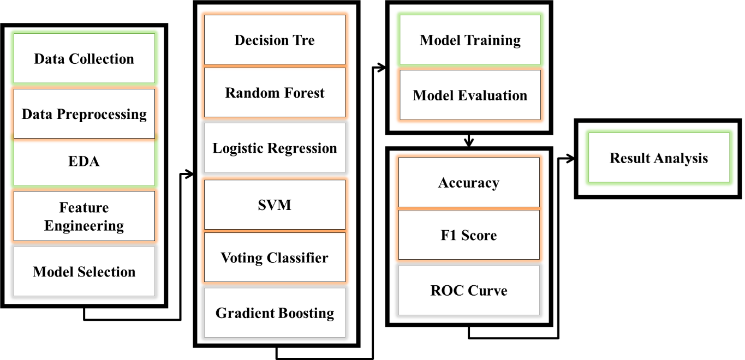ICCK Transactions on Neural Computing | Volume 1, Issue 2: 108-117, 2025 | DOI: 10.62762/TNC.2025.916035
Abstract
In recent years, the use of the Internet of Medical Things (IoMT) and electronic health records (EHRs) has created exhaustive sensitive healthcare data. If this data is analyzed in an effective way, it will improve the prediction of diseases, the recovery of patients, and the personalization of medicine. However, the collection of data in a central manner brings with it some serious problems related to privacy, security, and rules. Federated Learning (FL), the machine learning approach that is decentralized, seems to be a solution in which model training is carried out in a collaborative way without sharing any raw data. The application of FL in distributed health data analysis is the subjec... More >
Graphical Abstract
